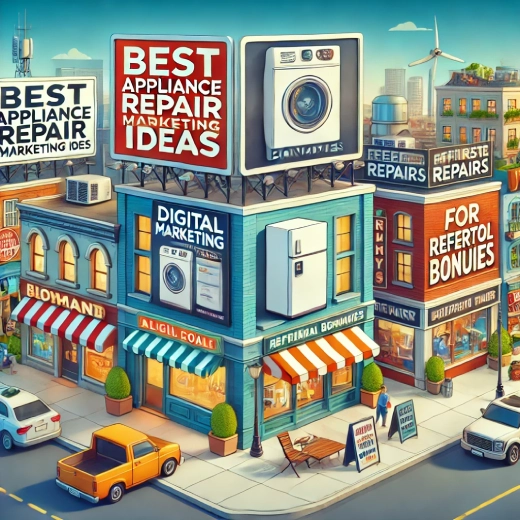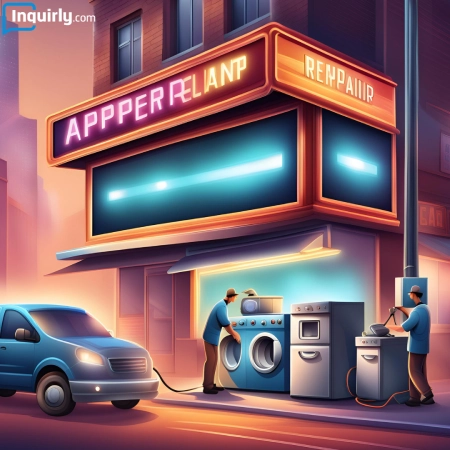Let’s dive into something really important for all you appliance repair business owners out there: your online presence. In this digital era, if you are not easily found online, you are missing out big time. More customers are hitting up search engines to find reliable repair services, and guess what? If your business pops up at the top, you are in for a serious boost in leads and revenue. That is where Search Engine Optimization (SEO) comes into play.
So, what is SEO all about? It is a mix of strategies and techniques to get your website noticed by search engines like Google. Enhance your SEO, and your business climbs the ranks in search results, making it easier for potential customers to find you. Today we are going to break down some killer SEO strategies specifically tailored for appliance repair businesses to help you snag more leads and grow.
We are talking about everything from keyword research to content creation and even the fundamentals of technical SEO. Plus, we will dive into local SEO – because, let’s face it, most of your customers are going to be local people. We will also touch on optimizing your Google My Business profile to drive more local traffic to your site.
By using these SEO strategies, your appliance repair business can stand out in the competitive market and attract the right customers. So, let’s get into it and see how you can use SEO to boost your leads and take your business to the next level.
Keyword Research and Optimization
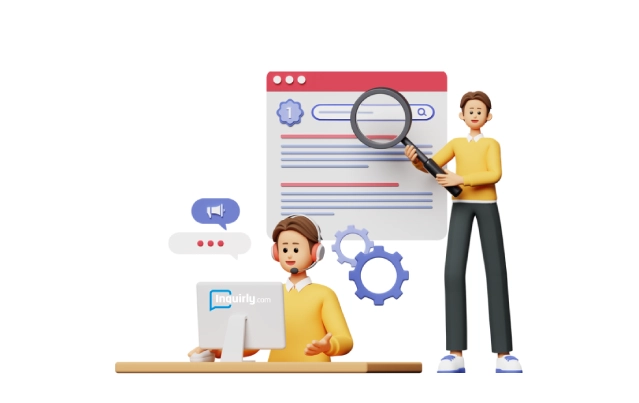
Let’s talk about something absolutely essential for your appliance repair business: keyword research and optimization. This is the backbone of a winning SEO strategy. By nailing the right keywords, you are not just drawing in any visitors – you are attracting the ones who are ready to turn into customers.
Identifying Relevant Keywords
First off, you need to pinpoint the key services your business offers – think refrigerator repair, washing machine repair, oven maintenance, and so on. Tools like Google Keyword Planner, SEMrush or Ahrefs are your best friends here. These can help you find keywords related to your services. Look for keywords with a sweet spot of high search volume and low competition. This boosts your chances of ranking higher on search results.
For instance, rather than just aiming for “appliance repair,” go for specific terms like “refrigerator repair” or “dryer repair.” These are more targeted and likely to attract people who need exactly what you are offering.
Long-Tail Keywords for Local Searches
Long-tail keywords are those longer, more specific phrases people use when they are closer to making a purchase. They are less competitive and usually have higher conversion rates. For appliance repair, think about phrases like “emergency refrigerator repair in [your city]” or “best washing machine repair near me.”
To find these golden long-tail keywords:
- Think like your customers – what specific problems are they facing? How would they search for solutions?
- Use keyword research tools – tools like Ubersuggest and AnswerThePublic can reveal long-tail keywords based on real user queries and search trends.
- Analyze competitors – check out what keywords your competitors are ranking for and find the gaps you can fill with your content.
On-Page Optimization Techniques
Once you have got your target keywords, it is time to optimize your website’s on-page elements. This means making your content and HTML more search-engine-friendly.
Here are some key techniques:
- Title Tags – make sure each page has a unique, keyword-rich title tag. Keep it concise and descriptive, like “Expert Refrigerator Repair Services in [City Name].”
- Meta Descriptions – write compelling meta descriptions that include your target keywords. These won’t directly affect rankings, but they do influence click-through rates. Make them enticing!
- Header Tags – use header tags (H1, H2, H3) to structure your content. The H1 tag should contain the main keyword, while subheadings (H2, H3) should logically organize the content and include related keywords.
- Content Optimization – naturally weave your keywords into your content without overdoing it. Aim for high-quality, informative content that answers your user’s questions. Include keyword variations to cover different search intents.
- Internal Linking – connect related pages on your website with internal links. This helps search engines understand your site’s structure and improves user navigation.
- Image Alt Text – optimize your images with descriptive alt text that includes relevant keywords. This helps search engines understand the images and improves accessibility.
By conducting these keyword research and implementing optimization strategies, you can boost your website’s search engine rankings, attract more qualified leads and grow your appliance repair business.
High-Quality Content Creation

Now let’s discuss how to create killer content that attracts and engages your audience, builds trust and boosts your search engine rankings. Here is how you can craft valuable and informative content that drives traffic and increases your appliance repair leads.
Creating Valuable and Informative Content
Your content needs to hit the nail on the head by addressing the specific needs and questions of your target audience. This means providing detailed, practical information that helps potential customers understand and solve their appliance problems.
- Answer Common Questions – write articles that tackle frequently asked questions about appliance repair. Think “How to Troubleshoot a Leaky Washing Machine” or “Signs Your Refrigerator Needs Repair.”
- Provide Step-by-Step Guides – create how-to guides that walk readers through common appliance maintenance and repair tasks. Make these guides easy to follow with clear instructions and visuals like images or videos.
- Share Expert Tips – offer expert advice on maintaining appliances to prevent future issues. This positions your business as a knowledgeable authority in the field.
Keeping Content Fresh and Updated
Regularly updating your content is key to keeping it relevant and effective. Fresh content tells search engines that your website is active and valuable, which can boost your rankings.
- Update Existing Articles – periodically review and refresh your older articles with new information, updated stats or additional tips. This keeps your content accurate and useful.
- Create Seasonal Content – write articles that are relevant to specific times of the year, like “Preparing Your HVAC System for Winter” or “Summer Maintenance Tips for Your Refrigerator.”
- Repurpose Content: Convert existing articles into different formats – think infographics, videos or podcasts. This helps you reach a broader audience and keeps your content strategy dynamic.
Content Types: Blog Posts, Guides, Videos
Mixing up your content types can engage different segments of your audience and improve your SEO.
- Blog Posts – regular blog posts can cover a wide range of appliance repair topics, from troubleshooting common issues to explaining the benefits of regular maintenance. Make sure your posts are well-researched, engaging and optimized for keywords.
- Guides – comprehensive guides on specific topics can be invaluable for your audience. Examples include “The Ultimate Guide to Refrigerator Maintenance” or “A Complete Guide to Appliance Energy Efficiency.” These guides can also be downloadable PDFs, helping with lead generation.
- Videos – videos are super engaging and great for demonstrating repair techniques and maintenance tips. Create short, informative videos showing step-by-step processes, like “How to Clean Your Dryer Vent” or “Replacing a Refrigerator Water Filter.” Host these videos on platforms like YouTube and embed them in your blog posts.
By focusing on high-quality content creation, you can attract and retain a loyal audience, improve your search engine rankings, and ultimately drive more leads to your appliance repair business.
Technical SEO
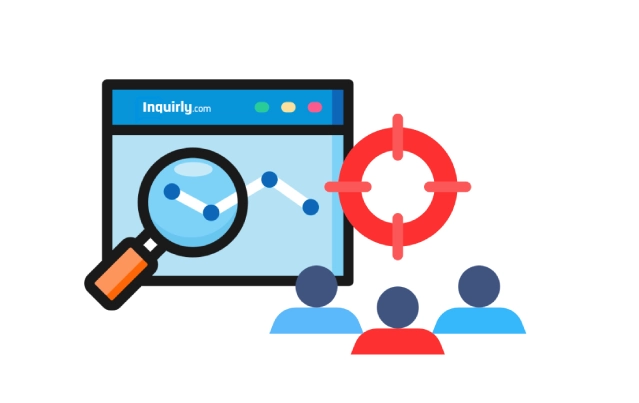
Now, it is time to talk about Technical SEO. This is all about making sure your website is a breeze for search engines to crawl and index, which is crucial for ranking well. Here is how to optimize your appliance repair website for top-notch technical performance.
Ensuring Fast Page Load Times
Page load time is super important for both user experience and SEO. Slow pages lead to higher bounce rates and lower rankings. Here is how to speed things up:
- Optimize Images – compress images to reduce file size without losing quality. Use formats like WebP for better compression.
- Minimize HTTP Requests – cut down the number of elements on your page – images, scripts, CSS files – to speed up load times.
- Use a Content Delivery Network (CDN) – a CDN stores copies of your website on servers around the world, reducing the distance data travels to reach users.
Enable Browser Caching – browser caching stores parts of your website on users’ devices, making pages load faster on return visits.
Mobile Optimization Best Practices
With more people using mobile devices to search for services, mobile optimization is a must.
- Responsive Design – make sure your website adapts to different screen sizes and devices. Use responsive design techniques for a seamless experience across all devices.
- Mobile-Friendly Content – make your content easy to read on smaller screens. Use larger fonts, short paragraphs and bullet points.
- Touch-Friendly Elements – make sure buttons and links are easy to tap without zooming in. Space elements out to avoid accidental clicks.
- Mobile Page Speed – mobile users expect fast load times. Use the Lighthouse Tool to check your site’s performance.
Implementing Structured Data (Schema Markup)
Structured data helps search engines understand your website’s content better and can enhance your listings in search results with rich snippets.
- Add Schema Markup – use schema markup to give search engines extra information about your business, like services offered, business hours and customer reviews. Google’s Structured Data Markup Helper is a great tool for generating this code.
- Local Business Schema – implement Local Business schema to boost your visibility in local searches. This includes essential business details like address, phone number and business type.
- Service Schema – use Service schema to describe the specific appliance repair services you offer. This can help your site appear in relevant searches and attract more targeted leads.
By focusing on these technical SEO aspects, you can make sure your appliance repair website runs smoothly, provides an excellent user experience and ranks higher in search engine results.
Local SEO

Local SEO is essential for appliance repair businesses as it helps you target customers in your service area who are actively searching for your services. Here is how to optimize your local SEO to increase leads.
Claiming and Optimizing Google My Business
Google My Business (GMB) is a crucial tool for local SEO. Claiming and optimizing your GMB profile can significantly enhance your visibility in local search results.
- Claim Your GMB Listing – if you haven’t already, claim your business on Google My Business. This allows you to control and update your business information.
- Optimize Your Profile – make sure all your business details are accurate and complete. Include your business name, address, phone number, website and business hours. Add high-quality photos of your business and services to make your profile more appealing.
- Regular Updates – keep your GMB profile up-to-date with any changes in your business, such as new services, updated hours or special promotions. This helps keep your listing relevant and engaging.
Using Local Keywords and Creating Location-Specific Landing Pages
To attract local customers, use keywords that include your location and create dedicated landing pages for different areas you serve.
- Local Keywords – incorporate local keywords into your website content, meta descriptions and headers. Keywords like “appliance repair in [your city]” or “emergency refrigerator repair near me” can help you rank higher in local searches.
- Location-Specific Landing Pages – create landing pages for each location you serve. These pages should be optimized with local keywords and provide relevant information specific to that area. Include customer testimonials, case studies and local contact information to make these pages more relevant and trustworthy.
Managing Online Reviews and Local Citations
Online reviews and local citations play a vital role in local SEO. They help build your business’ reputation and improve your search rankings.
- Encourage Reviews – ask satisfied customers to leave positive reviews on your Google My Business profile and other review platforms like Yelp and HomeAdvisor. Make it easy for them by providing direct links and instructions.
- Respond to Reviews – regularly monitor and respond to reviews, both positive and negative. This shows potential customers that you value feedback and are committed to excellent service.
- Build Local Citations – make sure your business is listed on local directories and citation sites such as Yelp, Yellow Pages and Angi (former Angie’s List). Consistent NAP (Name, Address, Phone Number) information across all listings helps improve your local search rankings and credibility.
By focusing on these local SEO strategies, you can enhance your online presence in your service area, attract more local leads and grow your appliance repair business.
Off-Page SEO

Off-page SEO involves actions taken outside your website to improve its authority and relevance, which can lead to higher search engine rankings and more leads for your appliance repair business. Here is how to effectively manage your off-page SEO.
Building High-Quality Backlinks
Backlinks from reputable websites signal to search engines that your site is trustworthy and authoritative.
- Earn Natural Backlinks – create high-quality, valuable content that other websites will naturally want to link to. This can include informative blog posts, comprehensive guides and industry studies.
- Use Directories and Listings – submit your website to relevant business directories and listings, ensuring that your NAP (Name, Address, Phone number) information is consistent across all platforms. This not only helps with backlinks but also boosts local SEO.
- Collaborate with Industry Experts – partner with other reputable websites in your industry for backlink opportunities. For instance, contribute to industry reports or co-author articles.
Strategies for Guest Posting and Outreach
Guest posting and outreach are effective ways to build backlinks and increase your site’s authority.
- Identify Relevant Blogs – find blogs and websites related to appliance repair, home improvement, or local services that accept guest posts. Websites like HomeAdvisor or Angi could be potential targets.
- Pitch High-Quality Content – when reaching out to these sites, offer well-researched and valuable content that is relevant to their audience. Make sure your content includes links back to your website naturally within the context.
- Build Relationships – networking with other industry professionals can lead to more opportunities for guest posts and backlinks. Engage with them on social media, attend industry events and join relevant online forums and groups.
Leveraging Social Media for Content Promotion
Social media is a powerful tool for promoting your content and attracting backlinks.
- Share Your Content – regularly share your blog posts, guides and videos on social media platforms like Facebook, Twitter, LinkedIn, and Instagram. Use engaging headlines and visuals to attract clicks and shares.
- Engage with Your Audience – respond to comments and messages promptly, and encourage discussions around your content. This increases visibility and the likelihood of your content being shared.
- Use Hashtags and Trends – use relevant hashtags and participate in trending topics to reach a broader audience. This can help your content gain more traction and attract potential backlinks.
- Run Social Media Campaigns – consider running targeted campaigns to promote your most valuable content. Paid promotions can help reach a larger audience and drive more traffic to your site, increasing the chances of earning backlinks.
By focusing on these off-page SEO strategies, you can enhance your website’s authority, improve search engine rankings and attract more leads to your appliance repair business.
User Experience Optimization

Optimizing the user experience (UX) on your website is extremely important for retaining visitors, reducing bounce rates and converting leads. Here are key strategies for designing a user-friendly website, improving internal linking and enhancing navigation and calls-to-action (CTAs).
Designing a User-Friendly Website
A user-friendly website ensures that visitors can easily find the information they need and have a positive browsing experience.
- Responsive Design – make sure your website is mobile-friendly and adapts to different screen sizes. More than half of all web traffic comes from mobile devices, so a responsive design is essential for providing a smooth experience across all devices.
- Fast Load Times – optimize your website to load quickly. Slow websites frustrate users and lead to higher bounce rates. Compress images, minify code and leverage browser caching to improve speed.
- Clear Layout – use a clean, simple layout with plenty of white space. This helps users focus on your content without being overwhelmed by clutter. Prioritize readability with legible fonts and contrasting colors.
Importance of Internal Linking
Internal linking helps guide users through your website, improves navigation and distributes page authority across your site.
- Logical Structure – organize your content in a logical hierarchy and link related pages to each other. For example, link blog posts on specific appliance repair topics to comprehensive guides or service pages.
- Anchor Text – use descriptive anchor text for internal links to give users and search engines context about the linked page’s content. Avoid using generic phrases like “click here.”
- User Flow – make sure internal links support a natural user flow, leading visitors from general information to more specific pages and ultimately to your contact or service booking pages.
Enhancing Navigation and CTAs
Effective navigation and clear calls-to-action are essential for guiding users to take desired actions on your site.
- Intuitive Navigation – design a straightforward navigation menu that categorizes content logically. Use descriptive labels and limit the number of menu items to avoid overwhelming users.
- Breadcrumbs – implement breadcrumb navigation to help users understand their current location within the website and easily backtrack to previous pages.
- Prominent CTAs – place clear, compelling CTAs on key pages. Use action-oriented language like “Schedule a Repair” or “Get a Free Quote.” Make sure CTAs stand out visually with contrasting colors and strategic placement.
- Contact Information – make it easy for visitors to contact you by including your phone number, email and a contact form on every page. A prominent “Contact Us” button in the header or footer can also be beneficial.
By focusing on user experience optimization, you can create a more engaging and efficient website that not only attracts visitors but also converts them into leads.
Monitoring and Analytics
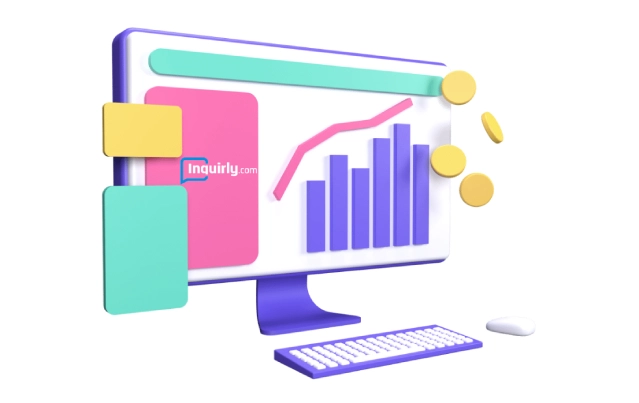
You should monitor and analyze your SEO efforts to understand what works and where you need improvements. By tracking performance and making data-driven adjustments, you can continually refine your strategy to drive more leads and grow your appliance repair business.
Tracking SEO Performance with Tools
To effectively monitor your SEO performance, use a variety of tools that provide insights into different aspects of your website’s health and search engine visibility.
- Google Analytics – this tool helps track website traffic, user behavior and conversions. It provides detailed reports on how visitors find and interact with your site, which pages they visit, and what actions they take.
- Google Search Console – use this tool to monitor your site’s presence in Google search results. It provides data on search queries, clicks, impressions and your site’s indexing status. You can also identify and fix issues like crawl errors and security problems.
- SEO Tools – tools like SEMrush, Ahrefs, and Moz offer comprehensive SEO analytics, including keyword rankings, backlink profiles and competitive analysis. These tools help you understand your position relative to competitors and identify opportunities for improvement.
Analyzing Key Metrics: Rankings, Traffic, Conversions
Focus on key metrics to gauge the effectiveness of your SEO strategy and understand where adjustments are needed.
- Rankings – track the rankings of your target keywords over time. High rankings for relevant keywords indicate successful optimization efforts. Tools like SEMrush and Ahrefs can help you monitor these rankings.
- Traffic – analyze organic traffic to your website. Google Analytics provides insights into the volume of visitors coming from search engines, the pages they visit and their behavior on your site. Look for trends in traffic growth and identify any drops that might indicate issues.
- Conversions – track conversions to measure how well your website turns visitors into leads. Set up goals in Google Analytics to monitor actions like form submissions, calls and bookings. Analyzing conversion rates helps you understand the effectiveness of your CTAs and overall site usability.
Continuous Improvement and Strategy Adjustments
SEO is an ongoing process that requires regular adjustments based on performance data and changing trends.
- Identify Weaknesses – use your analytics to identify areas where your site is underperforming. This could be low rankings for important keywords, high bounce rates on certain pages or low conversion rates. Pinpointing these issues allows you to make targeted improvements.
- Test and Refine – implement changes based on your analysis and test their impact. This could involve updating content, improving site speed or adjusting your keyword strategy. Continuously refine your tactics based on what works best.
- Stay Updated – SEO best practices and search engine algorithms are constantly evolving. Stay informed about the latest trends and updates by following SEO blogs, attending webinars and participating in industry forums. Regularly updating your strategy ensures you remain competitive.
By effectively monitoring your SEO efforts and making data-driven adjustments, you can enhance your website’s performance, attract more leads and drive sustained growth for your appliance repair business.
Conclusion
Let’s wrap this up. If you are running an appliance repair business and want to boost your online presence and snag more leads, effective SEO is your secret weapon. Here is the summary how to nail it:
Nail Your Keyword Research and Optimization – targeting the right audience starts with thorough keyword research. Focus on relevant search terms that your potential customers are using. This ensures your content hits the mark and attracts the right crowd.
Create High-Quality Content – craft content that addresses your customers’ needs and provides valuable information. This not only helps your rankings but also positions your business as an authority in the appliance repair field. Think guides, FAQs, how-tos and expert tips.
Master Technical SEO – make sure your website is fast, mobile-friendly and easy to navigate. This enhances user experience and boosts your search engine rankings. Optimize images, minimize HTTP requests, use a CDN and enable browser caching for speed.
Leverage Local SEO – optimize your Google My Business profile and use local keywords to capture customers in your service area. This is crucial for getting found by people who need your services nearby.
Boost with Off-Page SEO – build high-quality backlinks and use social media to enhance your site’s authority and visibility. This helps drive more traffic and improves your overall SEO performance.
Monitor and Adjust – use tools like Google Analytics and Google Search Console to keep tabs on your SEO performance. Track key metrics and make data-driven adjustments to continually refine your strategy.
Stay Updated – SEO trends and algorithms are always evolving. Keep yourself informed with the latest updates by following SEO blogs, attending webinars and participating in industry forums. Regularly updating your strategy ensures you stay ahead of the competition.
The Payoff – investing time and resources into these SEO strategies will improve your search engine rankings, build trust with potential customers and drive more leads. This ultimately means more revenue for your business.
By focusing on these areas, your appliance repair business can achieve sustained success and growth. Stay committed, keep learning and watch your online presence soar!

